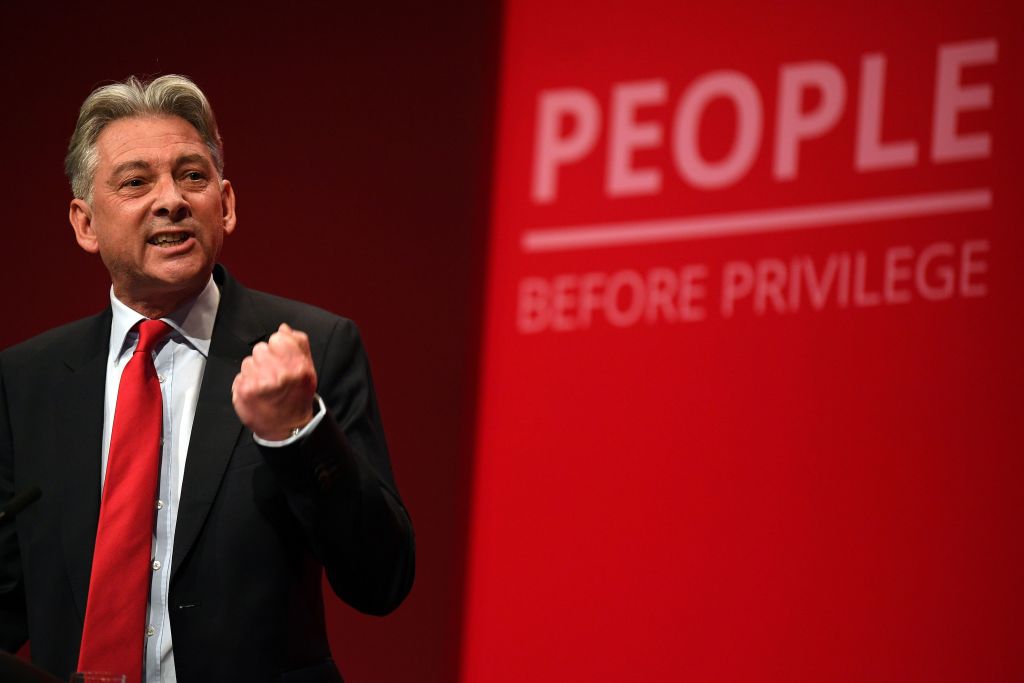Seventh time lucky? Richard Leonard, who has resigned this afternoon, was the sixth Scottish Labour leader since the SNP elbowed the party out of power in 2007. His tenure was the second-longest since devolution began, mostly because Labour is in such bad nick north of the border that no one else wants the job. The Yorkshire-born Scot secured the leadership in 2017 in part by allowing the impression to get about that he was a Corbynista. In truth, he hails from the harder edge of the soft-left and in his three years at the helm of Scottish Labour he did not shift the party significantly to the left. He leaves little in the way of a legacy and cannot claim to have changed much.
Since I called for him to resign last September, I can hardly eulogise him now, but it deserves saying that he is a decent sort who always seemed out of place at the weekly First Minister’s Questions jousts. His background is in the union movement — he was previously an organiser for GMB Scotland — and by comparison parliamentary opposition can be frustrating. There’s a lot to fix but only one side, the other side, has any power. He should have gone when Labour MSPs got up a no confidence motion against him last year but his resignation statement refers to having ‘thought long and hard over the Christmas period’ about ‘what the speculation about my leadership does to our ability to get Labour’s message across’.
His deputy Jackie Baillie, stalwart of the Scottish Labour right, will take over for now. She is more than capable of doing the job in her own right but may be too much of a backroom arm-twister for the niceties of frontline politics. Former deputy leader Anas Sarwar, whom Leonard defeated in the 2017 leadership race, is a good performer in the chamber and on the telly. To the extent Nicola Sturgeon would have cause to fear any Labour leader, Sarwar is the one. He’s smart, strategic, and knows Glasgow politics inside out (his father, Mohammad Sarwar, was a long-time MP for Glasgow Central and is now the Governor of Punjab). He also appreciates what almost no one else in the opposition or the media does: health, not education, is Sturgeon’s weak spot.
Ian Murray, the party’s only Scottish MP, is well-liked among centrists and soft-left members. (He was a critic of Corbyn but was also against renewing Trident.) If he went for the job, however, there would be more questions about the revelation that he almost quit Labour to join Change UK. Another name worth bearing in mind is Monica Lennon, Scottish Labour’s health spokeswoman and the most effective member of the frontbench. With three female leaders since devolution, Labour in Scotland has a better record on putting women in charge than the party down south.
Whoever ends up replacing Richard Leonard will have the unenviable task of attempting to revive Labour’s fortunes in Scotland. Sir Keir Starmer is liked by the kind of voters the party is trying to win back, but Labour at Holyrood is stodgy and uninspiring. It is also hobbled by the constitutional question. On paper at least, Scottish Labour is a pro-Union party but in practice a large minority of its supporters would vote to leave the UK in a second independence referendum. There are some activists in the upcoming generation who want to see Labour soften its stance against Scexit or even drop its opposition altogether. After years of attacks from the Tories that Labour is becoming SNP-lite, the next leader would be well advised to knock this matter on the head early on.
Oh, and there is the small matter of an election. Pandemic permitting, Scots go to the polls in May for a Holyrood vote, and the SNP is far ahead in the polls. There is no chance of any leader taking Scottish Labour to victory. At this stage, even displacing the Conservatives to retake second place feels too ambitious. The election, if voting goes ahead, is about keeping the party’s head above water and members will have to decide whom they consider most capable of doing that.







Comments